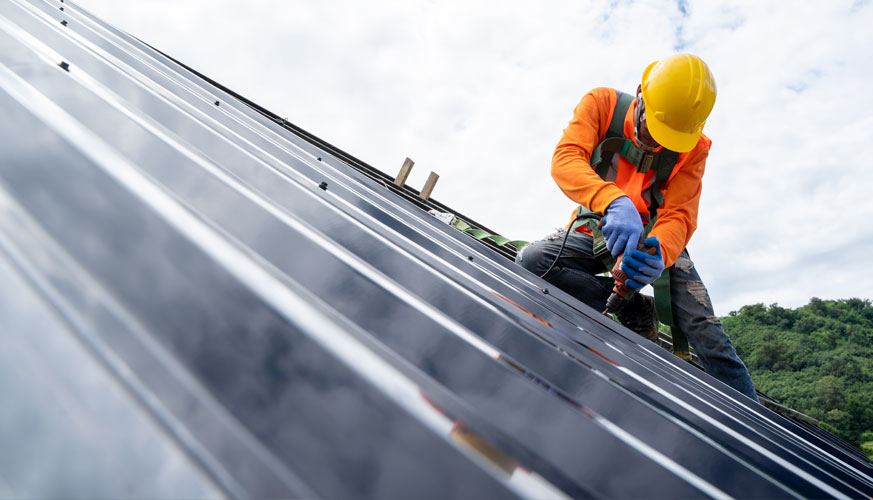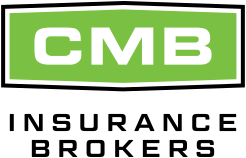Roofing Contractor’s Insurance
As a roofing contractor, insurance is essential for protecting you against the unique risks associated with your trade. Protect yourself from potential liabilities such as third-party injuries and property damage.
Proper insurance coverage is vital to the roofing industry
Too often, insurance providers offer standard, packaged solutions they assume will work for all roofing contractors. Our specialists in construction risk will work with you to review your portfolio, identify any associated exposures and draw up a custom solution that’s suited to your unique needs. Whether you are a tradesperson working alone, a large construction firm or an independent engineer/architect, our over 30 years of in-depth experience in working with the roofing contracting industry have given us the unique expertise to craft coverage that’s specific to you and your business.
Why do I need Roofing Contractor’s Insurance?
- Protection for property, tool, supply and equipment losses due to fire, vandalism, theft and more
- Protection for equipment breakdowns
- Protection for liability losses due to injury or third-party property damage
- Protection for errors and omissions
- Protection for loss of income due to business interruption and more
- Protection for automobile losses due to accidents and vandalism
- Protection for cyber losses due to data loss, credit card breach and other digital threats

Roofing Contractor’s face unique risks
As a roofing contractor the risks you face are unique to you and your insurance should reflect that. Roofer’s Insurance will provide coverage for anything from property damage and injury to theft of tools.
Property Exposures:
- Property exposure at the roofing contractor’s own location is generally limited to those of an office, shop, and storage of materials, equipment, and vehicles. Solvents, chemicals, or sealants used in roofing operations may be flammable creating a risk of fire.
- If repair work on owned vehicles and equipment is done in the building, fire hazards may be high due to the presence of oils, fuels, and other combustibles.
- When hot built-up roofing is done, any preparation work with hot tar and asphalt heated at the yard site increases the fire potential for both the insured and to neighbouring properties.
- Equipment, materials, and supplies stored in the yard have higher exposures to wind, vandalism, and theft.
Inland Marine Exposures:
- Inland marine exposures include tools and equipment, goods in transit, and installation floater. Hoists, ladders, scaffolding and similar equipment may be damaged during transport to or from the job site by collision or upset, or during setup or use.
- Tools and building materials may be subject to damage by dropping or loss due to theft by third parties or employees.
- Material being installed is highly susceptible to damage during handling or from wind or rain before installation is complete.
Occupier’s Liability Exposure
- At the job site, tools, power cords, and scrap all pose trip hazards even when not in use.
- Roofing materials or tools and equipment dropped during operations may cause serious injury to occupants or passers-by, or may cause serious property damage.
- Wind or weather may damage the unfinished portion of the roof or the interior of the building during the installation process.
- Repair or installation using hot tar may be a fire hazard to the building being worked on or to neighbouring structures.
Environmental Impairment Liability Exposures
- Environmental impairment liability exposures are from the disposal of old roofing materials to the disposal of waste tar, asphalt, sealants and adhesives.
- Removal of asbestos tiles may be a concern, although the asbestos in tiles is typically non-friable (it does not readily crumble and become airborne).
Automobile Exposures
- Automobile exposures are generally limited to transporting workers, equipment and supplies to and from job sites.
- Loading and unloading hazards may be significant. If hot tar or asphalt is used, transport may be hazardous as overturn could result in damage to other vehicles.
Workplace safety exposures
- Workplace safety exposure can be severe as work is done above ground. Workers can fall from roofs due to tripping or from sudden changes in the wind or weather. They may also be injured by falling objects.
- Common hazards include injuries from lifting, cutting the flashing and other materials, and work with hand and power tools. The application of hot tar and asphalt can result in burns and eye, skin, and lung irritations.
Roofing Contractors we cover include:
- Self-Employed Roofing Contractors
- Commercial Roofing Contractors
- Home/Residential Roofing Contractors
What types of Business Insurance do I need?
There are many types of contractor insurance policies that our experts can advise you on and package to meet your specific needs, such as:
- Commercial General Liability
- Commercial Property Insurance
- Business Interruption Insurance
- Pollution Liability Insurance
- Professional Liability Insurance
- Product Liability Insurance
- Equipment Breakdown Insurance
- Commercial Auto Insurance
- Cyber Insurance

